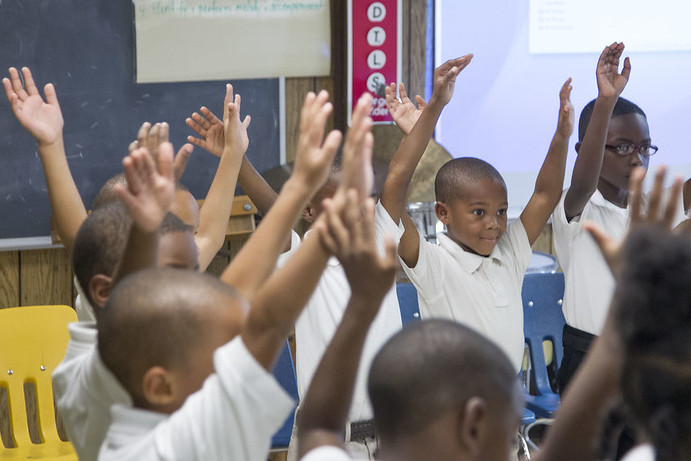
2020 has been a tough year for optimists. Tornadoes tore apart our homes. COVID-19 tore up our school year. The killings of Ahmaud Arbery, and Breonna Taylor, and George Floyd, and others are tearing out our hearts.
As an optimist, I believe that a great and equitable education is one of the best ways to eradicate racial inequities and tackle racial injustice. Tennessee has improved overall student outcomes through determination and focus at the state and local levels. But look at the student data in more detail, and it becomes clear that the gains that lifted Tennessee to among the fastest-improving states have not lifted all our children.
We haven’t done nearly enough work for the students who have the most stacked against them.
Third-grade reading proficiency is 33 percent overall in our state, a low level that demands urgent action. Yet reading proficiency, a critical marker for later success in school and higher education, is even lower for black students (21 percent). Among white students, it is 44 percent.
In seventh-grade math, 34 percent of all Tennessee students meet or exceed grade-level expectations. But 17 percent of black students are on or above grade level in seventh-grade math, a critical marker for success in the later math courses needed for high-demand, high-paying STEM careers. About 40 percent of white seventh-graders are on grade level in math.
Scoring a 21 or better on the ACT is the threshold for a HOPE scholarship. While 50 percent of white students reach that level, 22 percent of students of color do. Postsecondary completion is 32 percent for white students and 16 percent for black students.
I want to be very clear with this next point: These results are not a reflection on the kids or their ability. All students can achieve at high levels if our education system is providing the right supports. These unacceptable results reflect systemic inequality in the key areas that matter most to student success: uniformly high expectations, great teaching, effective school leadership, equitable opportunities, deep student support from kindergarten to career.
Educators I know are deeply troubled by these gaps, and they are working to remove the deep-seated unfairness. Here’s an example both simple and profound. Shelby County Schools (SCS) identified 600 more students for its gifted program when it adopted universal screening. About 60 percent of newly identified students are black, compared with 44 percent last year. The SCS solution wiped out one form of systemic inequity by installing a new system that equalized access to educational opportunities.
When it comes to making progress, what matters is acknowledging that education inequities do exist but do not have to exist and recognizing that each of us can work to eliminate them for all students, especially students underserved because of race or ethnicity. As leaders in the work to improve education in Tennessee, we have a responsibility to not only listen more closely to the communities we serve but to accept the challenge of doing our work differently in order to identify and eliminate the barriers to racial equality. And this extends to our work at SCORE as well; we need to do more to listen and then take action to advocate for the students of color in our state.
Some of the scary events of 2020 – tornadoes and novel viruses –have been out of our control. But making education work for all Tennessee students – and particularly our black and brown students – is something within our control. As an optimist, I believe we can do it. As a realist, I know we have to.
David Mansouri is president and CEO of SCORE.
